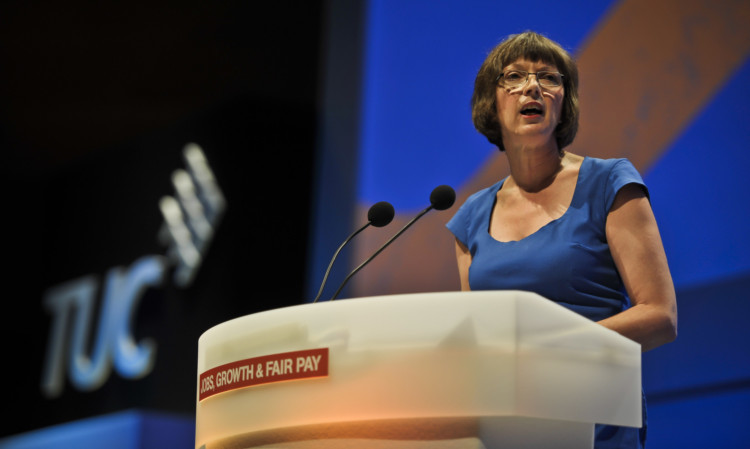The threat of co-ordinated strikes and civil disobedience is set to explode on November 5 as unions step up campaigns over pay, jobs and conditions.
The TUC Congress approved calls for unions to co-ordinate action as the most effective way to break the cycle of pay restraint. A day of civil disobedience being planned by the People’s Assembly on November 5 will now be supported by unions.
Any industrial disputes could lead to action on the day, which will also see protests over rail fares and ticket office closures.
Civil disobedience could include sit-down protests and blockades of bridges. Unite’s executive director of policy, Steve Turner, told the TUC Congress in Bournemouth that “mass mobilisation” was needed, including peaceful civil disobedience.
“We are the seventh richest nation on our planet, and if we have got money to propose war on Syria, we’ve got money to wage war on food banks; to put our people back to work; our children into school and university – not debt and despair – and to provide dignity for our elderly.
“It is up to us – not just to fight back industrially, but to build a mass movement, by building a social consensus, a coalition for change, amongst organised and unorganised workers, campaign groups, the People’s Assembly, churches and charities, as well as direct action and grassroots organisations.”
He said a motion approved by delegates “commits us to fighting back – industrially where possible – but more than that, it commits us to organise a mass mobilisation.
“Supporting the fantastic work of the People’s Assembly and the national protest on 5 November.”
Janice Godrich, President of the Public and Commercial Services union, said: “Our response as a movement has to recognise this is a government that sees itself as being at war with the public sector and trade unions.
“We need action, and my union believes we will need mass co-ordinated strike action to bring this government to the negotiating table and to defeat austerity.”
Unison leader Dave Prentis hit out at the “scandal” of poverty pay and insecurity of casual work.
He told delegates: “As far as Unison is concerned we will campaign, we will organise and move to co-ordinated action across sectors. That’s when we are strongest. It’s the only effective way to break this unjust pay freeze.
“And when we move to action, we expect the Labour party, our Labour party, to be there with us, supporting us.”
TUC general secretary Frances O’Grady told delegates that the TUC was ready to co-ordinate industrial action where unions wanted it.
The warnings came as the Communication Workers Union confirmed it will ballot over 120,000 of its members over issues linked to the Government’s controversial plan to privatise the Royal Mail.
The company will be given formal notice of the ballot later this week, with voting due to start on September 20 and the result expected in early October.
Firefighters have already voted for strikes over pensions, while teachers are to take industrial action in the coming weeks in a long-running dispute over pay, pensions and working conditions.
